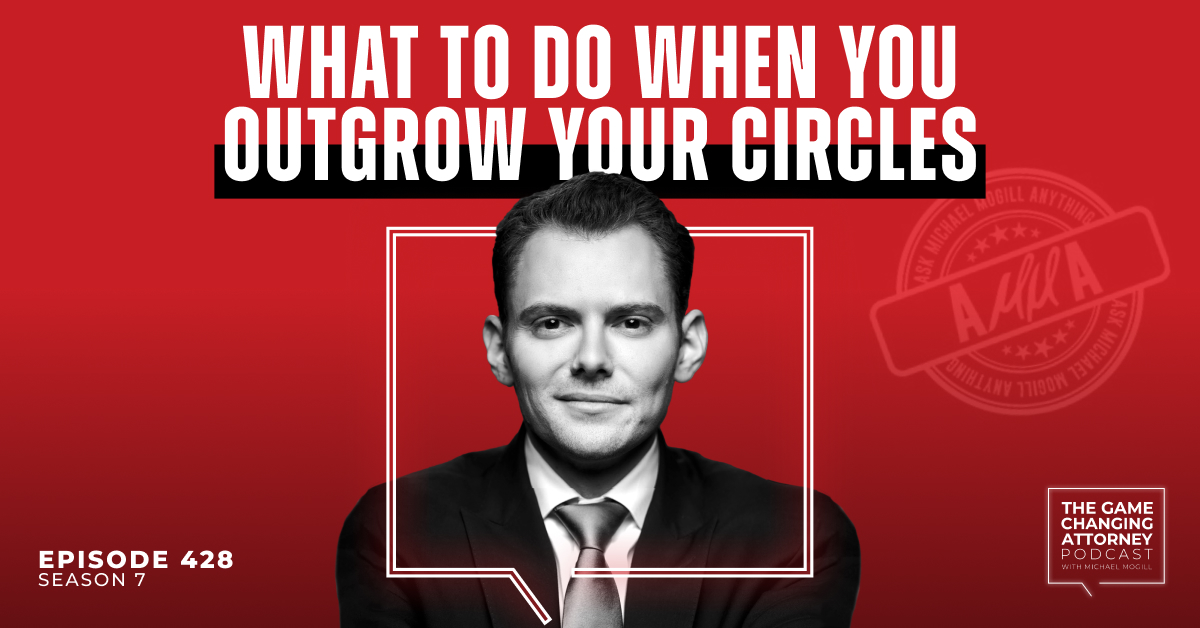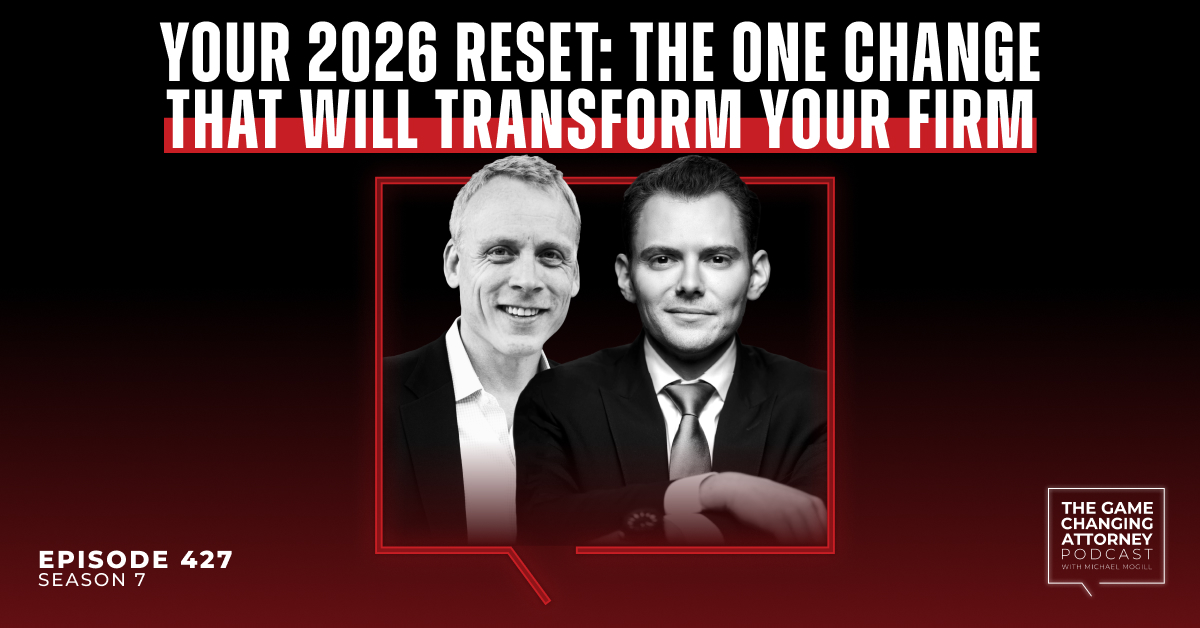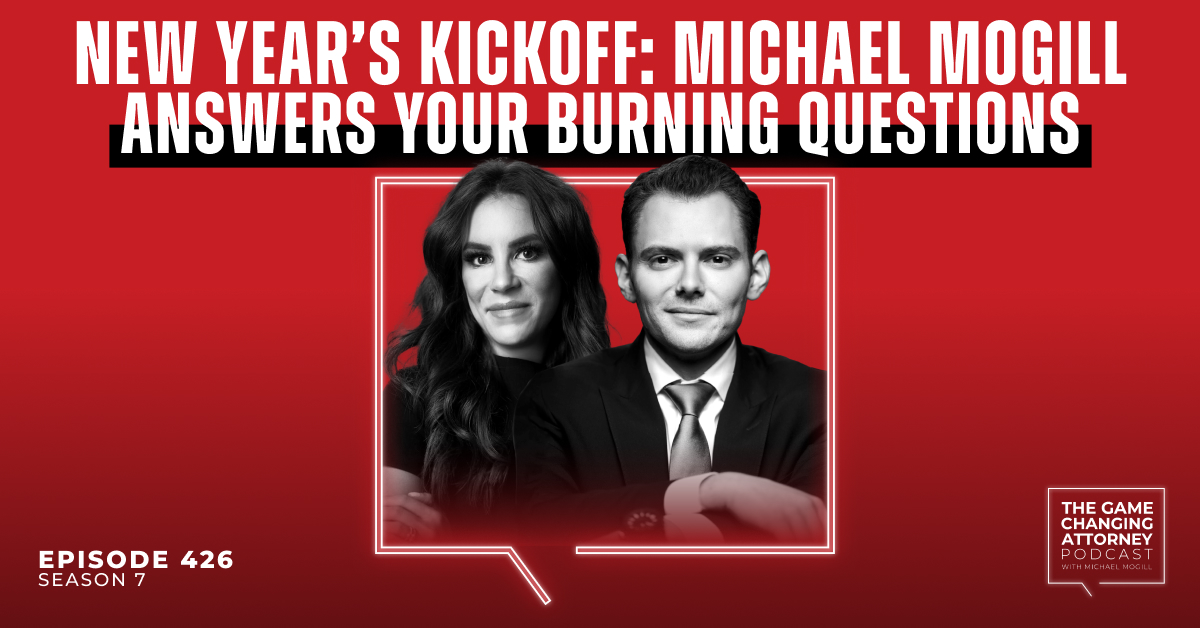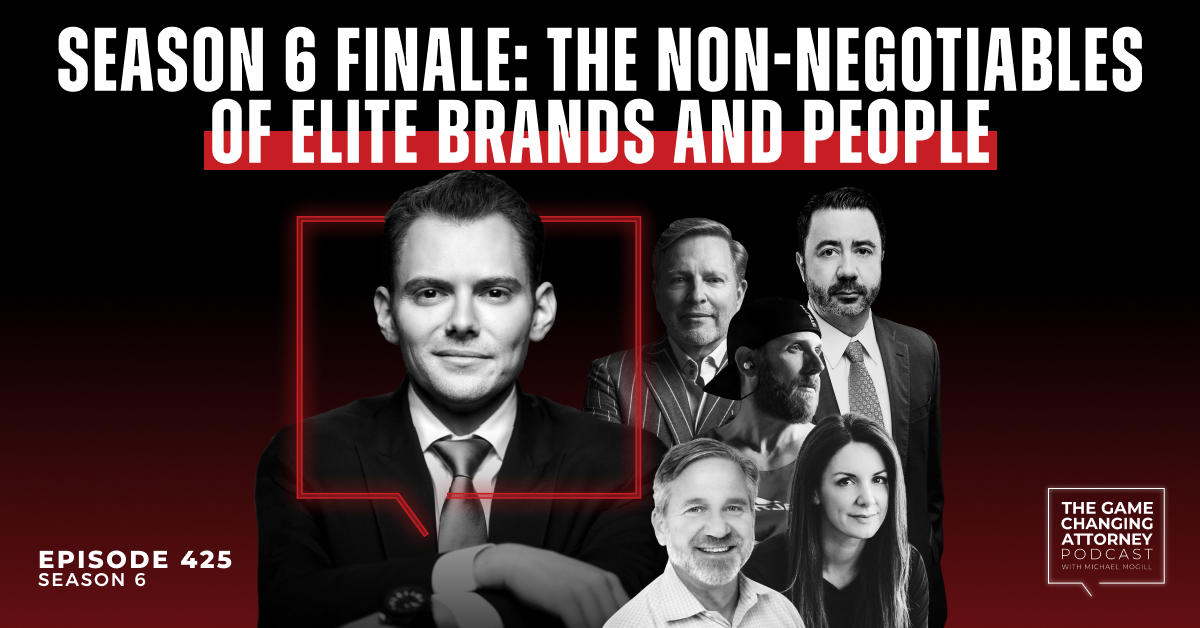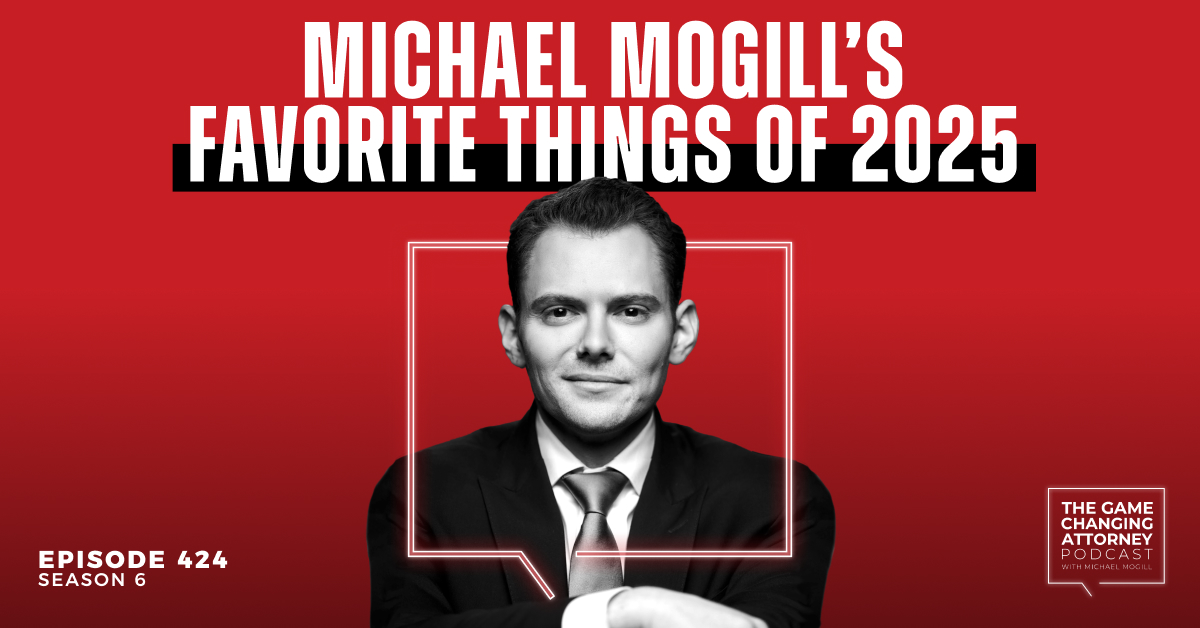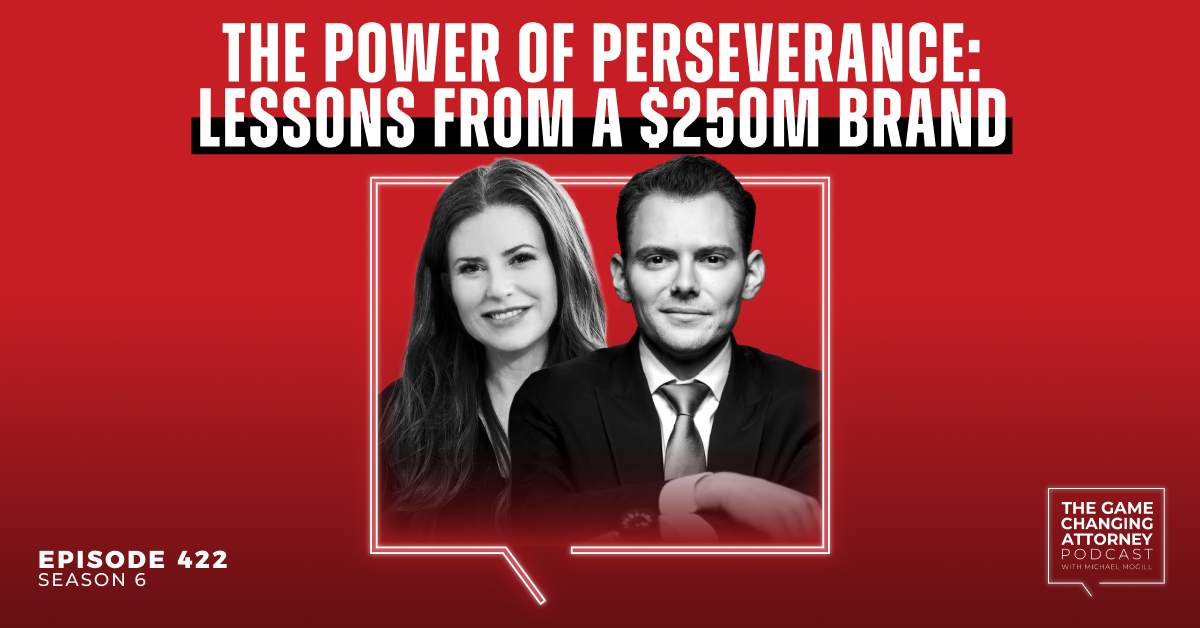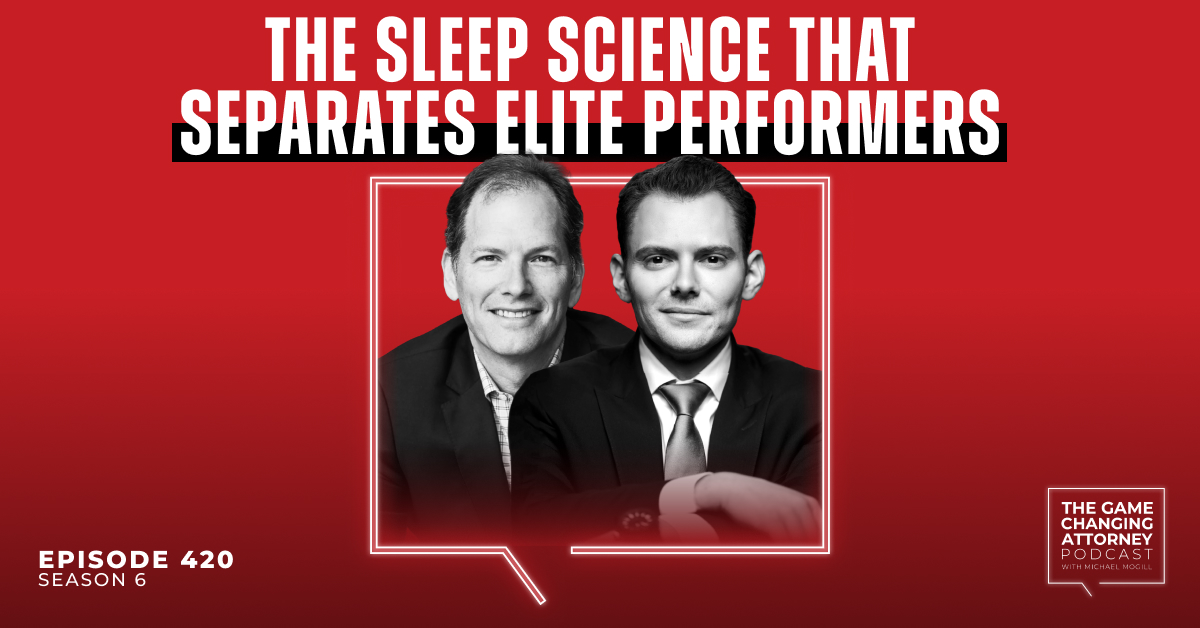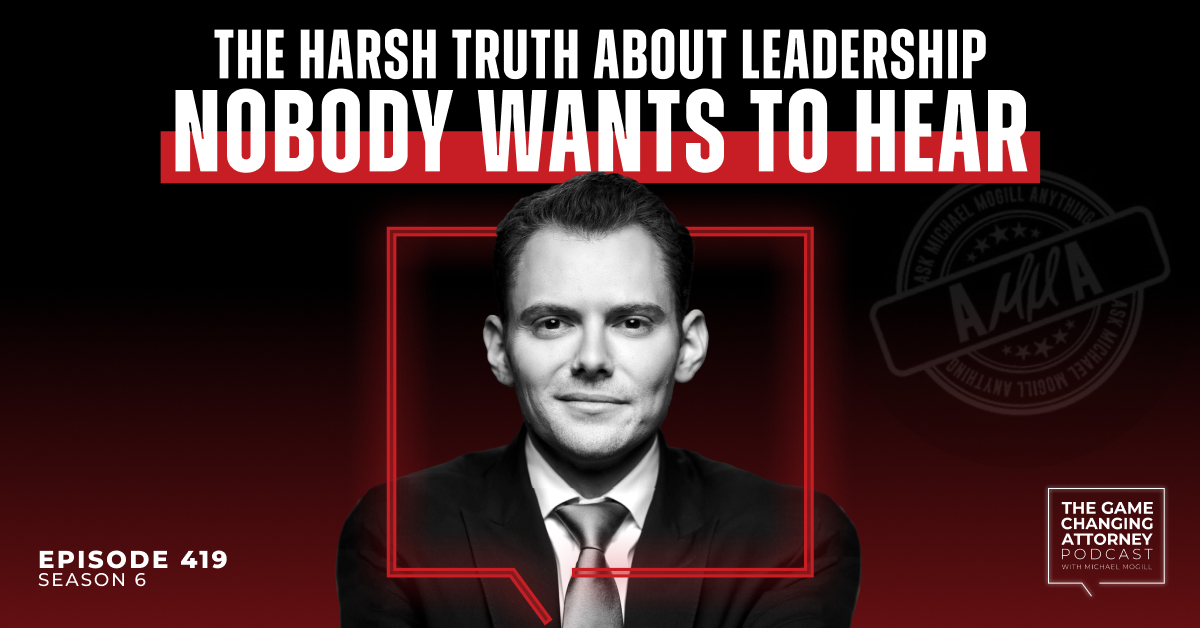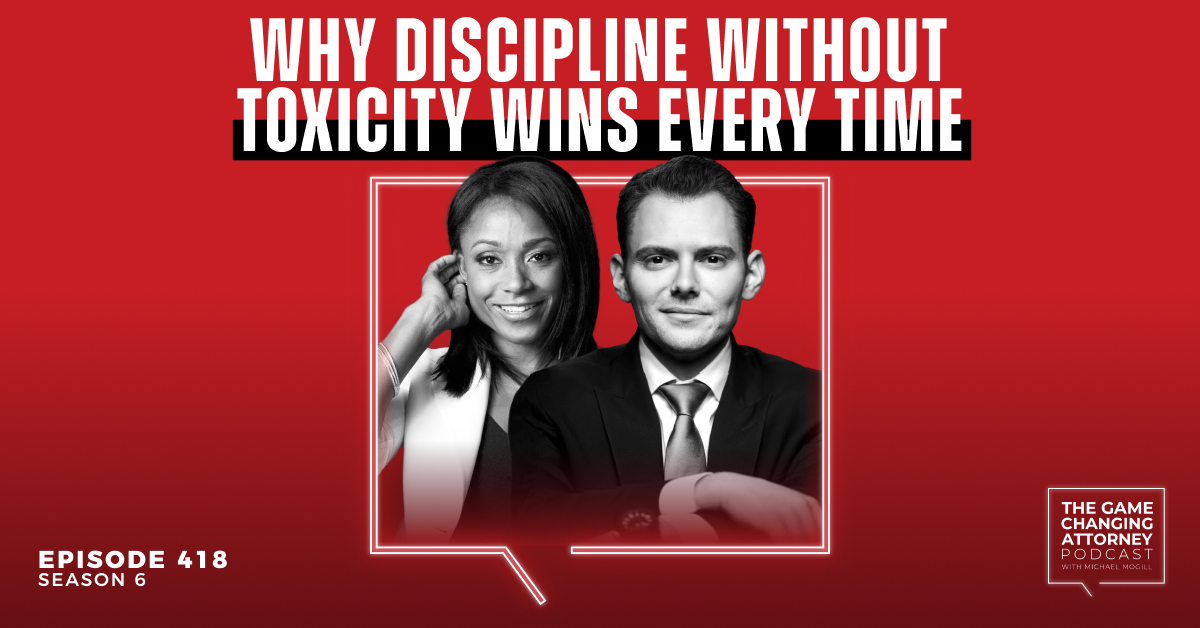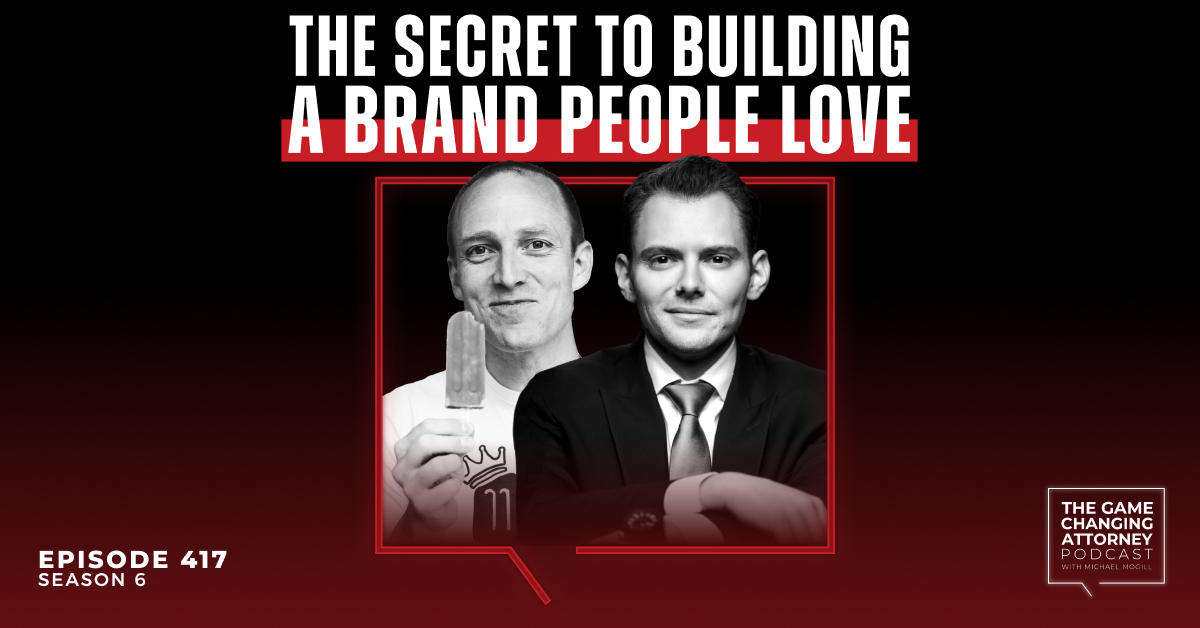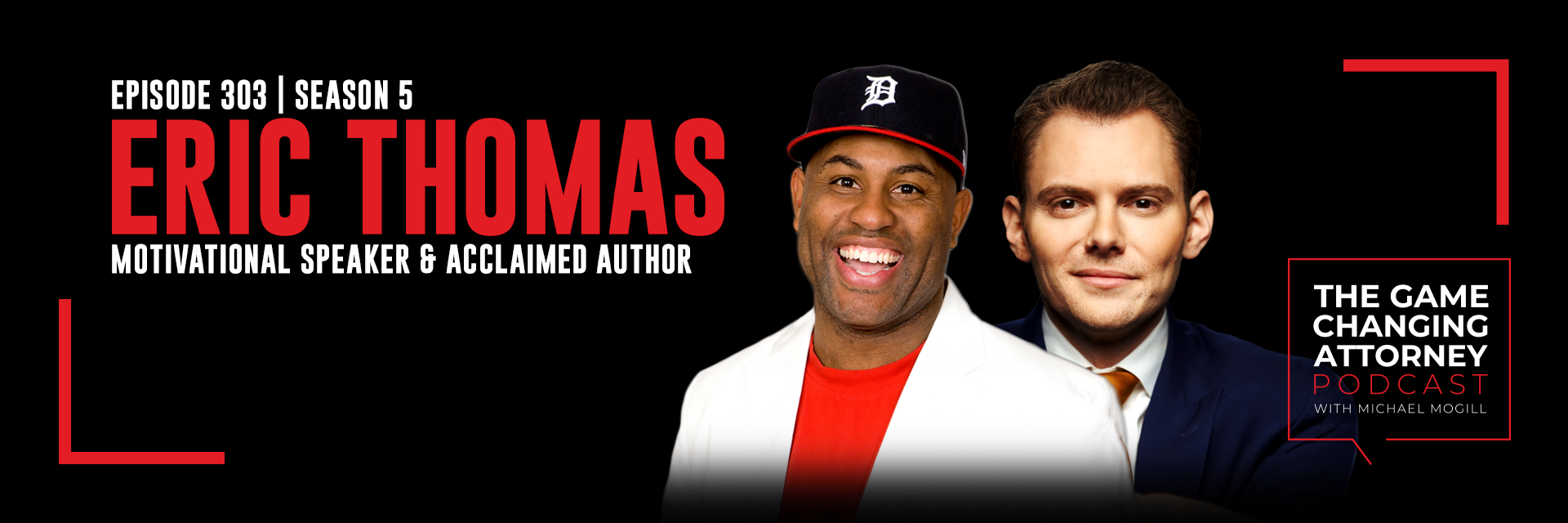
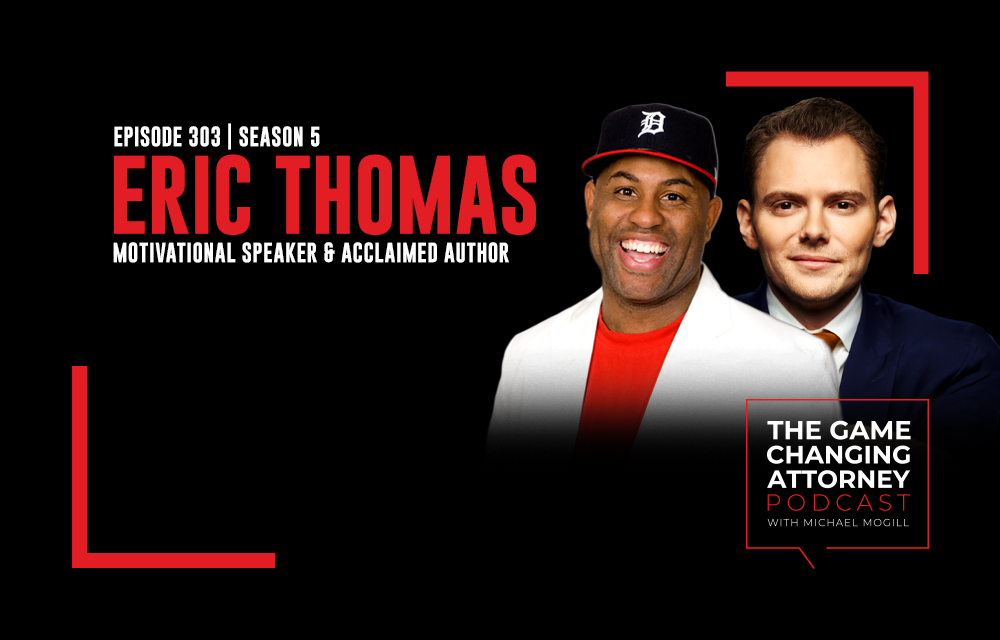
Episode 303 — Eric Thomas — Turning Struggles into Strength: A Blueprint for Resilience
In this special encore edition of The Game Changing Attorney Podcast, we’re bringing back one of the most powerful episodes featuring Eric “ET” Thomas.
From homeless high school dropout to world-renowned motivational speaker, author, and educator, ET’s story of triumph is nothing short of remarkable. Revisit this incredible conversation where he shares the pivotal moments and influential figures that drove him to overcome impossible odds and reach the top.
In this episode, you’ll learn:
- Why desire is the ultimate key to achievement
- The biggest mistakes leaders make — and how to avoid them
- Practical strategies to overcome self-sabotage and unleash your potential
If you’re ready to break through barriers and fuel your own journey toward greatness, this episode is for you.
Listen & Subscribe
Show Notes:
Homeless beginnings. “It all started when I was 16 or 17 years old when I ran away from home for good. I was living in abandoned buildings, eating out of trash cans, and stealing out of the grocery store just so I could have food. It was rough. I slept in the car when I had it. I slept at a friend’s house. It’s definitely been a journey. I was a high school dropout, and I worked at a 24-hour McDonald’s from 5 PM to 5 AM to have a place to stay. It’s so much easier going to somebody’s house in the daytime and just acting like you’re chilling than it is to go at night. People kind of know you’re spending the night when you go at night. So I worked at McDonald’s five or six days a week, and we only took a break to clean up. I literally tried to be the best burger flipper, because if I wasn’t, they’d give a shift to somebody else. I had learned to do everything by myself. I wanted to make sure that nobody could outwork me.”
Social connection is crucial. “I had a strained relationship with my mom, and I wasn’t going home. So some of that social capital you get from home, that affirmation, that love, and that tender care — I wasn’t getting that. When people think homeless, they only think of abandoned buildings, malnutrition, and not bathing, but I think a bigger piece to homelessness is the sense of loneliness, not being attached to daily people you love and care for. I think that’s the thing that probably bothered me the most, that social capital. I didn’t have it, so Dede became that. She really bore the weight for most of it because I wasn’t with my sisters and I wasn’t going to my cousins. That strained relationship really separated me from my entire family, because I didn’t want to be around my mom, so of course I didn’t want to be around the people that my mom would be around. So Dede became that, and she became that love and support.”
The right people push you to greatness. “I don’t think that you can have a measure of success without having somebody to recognize your potential. But let’s be honest — a lot of people recognize potential, but pulling that out is a different beast. That’s Phil Jackson to Michael Jordan: ‘Mike, I see your greatness, but there’s so much more you could do. You’re an all-star, but I will make you a superstar.’ Dede made me a superstar. I’d already had these abilities inside of me. It wasn’t like dating Dede put them in me. They had already been there. She had a way of saying, ‘You have potential. I’m not satisfied with your potential. I want you to get it out, and I want you to actualize it.'”
Problem-solvers are valuable. “I’m not even really into degrees, but the critical thinking part is everything. When I was younger, I would have problems and create more problems from that problem. But as an adult now, I’m not saying that I’ve mastered it, but I got to a point where I can start figuring it out. You’ve got to critically think: how can you get yourself out of this? So I started to be a critical thinker. I was more analytical. I was solving problems, and I realized that the world was treating me a lot different as a problem-solver than it was as a person who created problems.”
The difference between talent and development. “People get confused with talent and development. Talent — you’re just born with that. Development — you’ve got to assemble that one. That comes in the box with a whole bunch of pieces and only a couple tools. I remember those abandoned buildings. I remember those sleepless nights. I remember using a kerosene heater to stay warm, and I remember smelling like Kerosene. I remember not thinking that I was worth much or of much value. I remember Pastor Willis at the time when I started going to that church saying to me, ‘Wow, you’re so gifted.’ I’m like, ‘What gifted? Where? I’m missing something here.’ And he would just keep saying it: ‘I really want to invest in you. I really want to help you to get off the streets. Look, if you’re ever interested in getting your GED, I know a place that you can go. We don’t mind paying for it. And if you ever get your GED, I’d be interested in sending you to my alma mater’ — which is Oakwood, where Dede went. I remember him giving me hope at this hopeless time.”
Strong desire moves mountains. “The challenge is not potential. The challenge is not even talent. The challenge is desire. They say effort is the indicator of interest. I think the biggest challenge is that people have potential. They actually have some skill set. I just think most people don’t want it. They don’t put forth the effort.”
Leaders are speaking the wrong language. “I think one of the things that leaders do wrong is they speak their own language. If they would learn to speak the right language and learn to use their followers’ dreams, goals, and ambitions to their advantage — if they could learn to use a thing that motivates them and drives them to their advantage — they’d be more effective leaders.”
The thin line between confident and cocky. “It’s a thin line, but we have to understand that cocky takes us to the place of, ‘I know it all. I don’t need anything.’ Confidence takes us into, ‘I’ve done the work. I put in the time, but I still don’t know everything. I’m still not all-knowing, and I still can’t be everywhere at one time, and so I have to humble myself.'”
How to become valuable. “By meeting a need, I brought value to the marketplace. Once you bring value to the marketplace, after that, in this society it becomes easy at that point. First you meet a need, and then you become valuable.”
Being a game changer means changing lives. “It’s by helping a group of people who don’t see their greatness see their greatness. Changing the game means changing their life — helping people who are afraid to overcome that fear, whether that’s helping a father become a better father, or a better husband, or a better student, or a better human. It’s about doing things that are impactful, things that move the needle, not just status quo. It’s about being better today than you were yesterday. It’s about challenging yourself. It’s about being in challenging environments. It’s not being around ‘yes’ men. It’s not being around people who won’t challenge you. It’s really about doing what you do, doing it in a meaningful way, and doing things that are meaningful, that literally change people’s perspectives, their lives, and their experience here on Earth.”
- McDonald’s
- MLB
- NFL
- Detroit, MI
- Phil Jackson
- Michael Jordan
- Kobe Bryant
- Credit score
- Michigan State University
- Brian McKnight
- Take 6
- Iron Man
- Superman
- GED
- Oakwood University
- NBA
- Think and Grow Rich: A Black Choice by Dennis Kimbro and Napoleon Hill
- Federal TRIO programs
- Steve Smith
- Dan Gilbert
- Magic Johnson
- Crenshaw schools
- YouTube
- General Motors (GM)
- Chrysler
- Tom Brady
- Nick Saban
- University of Alabama
- Auburn University
- S&P 500
Connect with Michael
- Text directly at 404-531-7691
